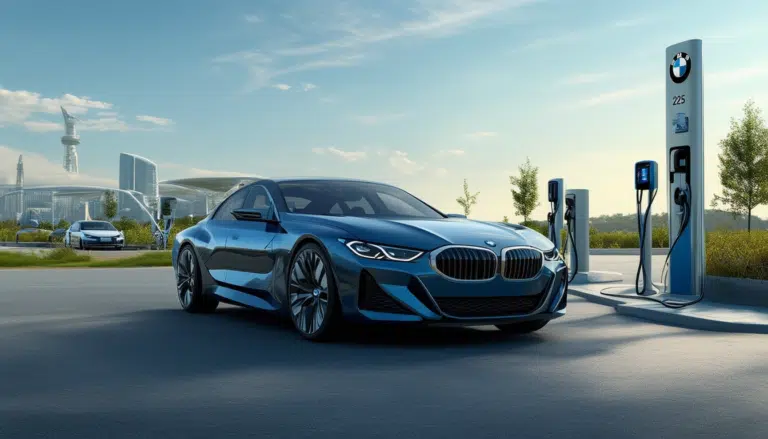Planification of a sustainable trip to save fuel
The planning of a sustainable trip has become essential today, not only to enjoy unforgettable experiences but also to contribute to the reduction of fuel consumption and environmental impact. Good planning allows for the selection of the most efficient routes and the use of technological tools such as GPS navigation systems that optimize journeys by avoiding traffic congestion. By implementing eco-friendly strategies, it is possible to reduce carbon footprint and make the journey not only a pleasant experience but also responsible towards the environment.
The proper planning of a sustainable trip not only allows for an unforgettable experience but also contributes to fuel savings and reducing environmental impact. Here are key strategies to optimize routes using technology, choose efficient paths, and adopt driving practices that favor fuel economy.
Use of GPS technology in route planning
GPS technology has become an indispensable resource for those looking to save fuel during their trips. Modern navigation systems not only show the fastest route but also allow for avoiding congested areas, which can result in lower gasoline consumption. Applications like Google Maps, Waze, or integrated navigation systems in vehicles offer real-time information on traffic conditions and possible detours.
Strategies for effective planning
Choosing the most efficient route
When planning a trip, it is essential to opt for routes that minimize both distance and time on the road. This not only saves fuel but also reduces stress and enhances the travel experience. Using applications that indicate the shortest and fastest routes, as well as those without congestion, is a crucial step in this optimization.
Evaluation of the mode of transport
The choice of transportation mode also significantly influences fuel consumption. Whenever possible, it is advisable to opt for vehicles with better gasoline performance or even consider alternatives such as public transportation or carpooling, which allow for shared costs and reduced carbon footprint.
Incorporation of efficient driving practices
Beyond initial planning, adopting efficient driving practices can make a significant difference in fuel consumption. Driving at constant speeds, avoiding sudden accelerations, and maintaining proper tire pressure are some of the factors that can greatly contribute to lower fuel costs.
Practical tips for optimization
Advance planning
Anticipation is key in planning a sustainable trip. Reviewing the itinerary in advance allows for identifying potential stops and ensuring that the most effective routes are being used. This prior evaluation can help avoid surprises and further optimize fuel usage.
Vehicle maintenance
Regular vehicle maintenance also plays a crucial role in fuel efficiency. A well-tuned engine, clean air filters, and a properly functioning fuel system are essential to ensure that the car operates optimally. Making these adjustments not only benefits the environment but also prevents unforeseen expenses in the future.
Use of mobile applications to improve planning
Mobile applications designed for route optimization and fuel consumption tracking are valuable tools for any traveler. These applications provide suggestions for alternative routes and help monitor actual fuel expenditure during the journey, allowing for instant adjustments if necessary.
Conclusions on sustainable travel
By following these tips and strategies, every traveler can enjoy a more responsible and conscious travel experience. With the effective combination of planning, technology, and efficient driving practices, it is possible to significantly reduce fuel consumption and contribute to environmental conservation.
The planning of a sustainable trip is essential to minimize environmental impact and optimize fuel consumption. By making informed decisions from the outset, travelers can enjoy enriching experiences while contributing to the conservation of the planet. One of the first actions to consider is the choice of the destination; opting for places that promote responsible tourism and have sustainability programs can make a significant difference.
Once the destination is selected, it is crucial to efficiently plan the routes of the trip. In this regard, the use of GPS technology helps to find the shortest and least congested paths, resulting in lower fuel consumption. Additionally, applying strategies such as avoiding peak hours and using alternative routes contributes to a smoother and more sustainable experience.
The type of transportation also plays a key role in planning. Choosing more efficient vehicles or alternatives like carpooling can significantly reduce fuel usage. Furthermore, considering the use of public transportation or even bicycles for short trips promotes more eco-friendly mobility.
Finally, the importance of maintaining a conductive behavior towards sustainability during the trip should not be overlooked. Practicing efficient driving, maintaining proper tire pressure, and performing good vehicle maintenance can significantly contribute to fuel savings throughout the journey. By adopting these practices, every traveler has the opportunity to enjoy unique adventures without compromising the future of the environment.



